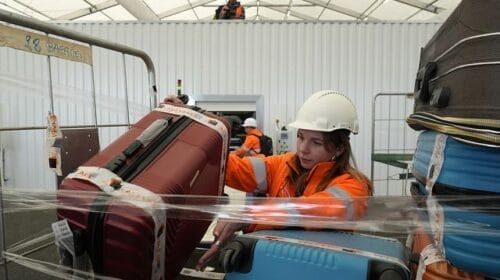Climate activist swims Ghana’s Volta Lake to raise awareness about water pollution

A Ghanaian climate activist, Yvette Tetteh has completed her mission of swimming across Ghana’s Volta Lake.
She spent 40 days swimming over 450 kilometers stretch of the Lake to raise awareness about the pollution of Ghana’s water bodies which is fast threatening their sustainability.
Tetteh, an agribusiness entrepreneur started her swimming expedition from Buipe in the northern sector of the country to Ada in the south.
Supported by a crew from the OR Foundation, the initiative also pushed for an end to what they call waste colonialism on Ghana’s ecosystems.
“The expedition started in Buipe on March 7th with the challenging task of putting the made-in-Ghana aluminum research vessel into the water,” she explained in a statement.
– Advertisement –
“The Swim Team, as members of the expedition crew have come to call themselves, then ventured down the Black Volta onto the Volta Lake, stopping in towns and villages along the way, many that have been flooded by rising waters and some that don’t appear on common maps at all,” he statement added.
Ending with a delight
Tetteh was welcomed by drummers and dancers along the banks of the Volta River on her last day of swimming.
While the 30-year-old was swimming and pushing an advocacy against textile waste, a team of researchers followed her and took water samples for testing.
The researchers from OR foundation gathered these water and air samples to investigate the causes of the water pollution in Ghana’s water bodies.
This has been a year and a half of scientific research by The OR Foundation into the environmental impact of secondhand clothing imported to Ghana as one of the world’s largest recipients of used clothing.
Officials of the OR foundation say Ghana’s water bodies are excessively contaminated by microfibers.
They hope to finally publish their research which could force Ghanaian authorities to take action to clean the water bodies.
For almost a decade now, unregulated mining activities have threatened Ghana’s water bodies, many of which have taken on poor artistic look.
This has impacted negatively on communities along the water bodies who depend on them for their livelihoods.




